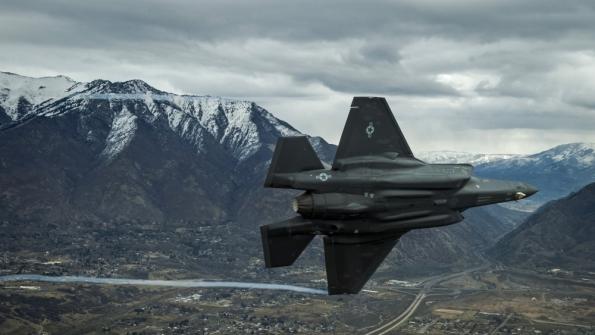U.S. State Dept. Clears Controversial $23B Arms Deal To UAE

The U.S. State Department on Nov. 10 formally approved a proposed sale to the UAE of 50 Lockheed Martin F-35As, 18 General Atomics Aeronautical Systems Inc. MQ-9Bs and a $10 billion package of munitions.
The package would arm the stealthy fighters and medium altitude, long-endurance unmanned aircraft systems with advanced weapons, including Raytheon AIM-120D Amraams, AGM-154C Joint Standoff Weapon Extended Range bombs and Northrop Grumman Advanced Anti-Radiation Guided Missiles, according to a Defense Department notification to Congress published Nov. 10.
The combined package, worth nearly $23.4 billion, still needs to be approved by Congress, where some lawmakers already have voiced objections.
Secretary of State Mike Pompeo released a statement that explicitly ties the potential deal to the UAE’s decision in August to normalize diplomatic relations with Israel.
The so-called Abraham Accords offer “a once-in-a-generation opportunity to positively transform the region’s strategic landscape,” Pompeo said. “The proposed sale will make the UAE even more capable and interoperable with U.S. partners in a manner fully consistent with America’s longstanding commitment to ensuring Israel’s Qualitative Military Edge.”
The proposed sale has proven controversial in Tel Aviv over the impact to the country’s desire for a qualitative military edge over other countries in the region.
The UAE first announced interest in acquiring a fifth-generation fighter at an event held on the eve of the 2009 Dubai Air Show. The Defense Department opened talks with the UAE about a possible sale in late 2017, but they led to nothing.
In 2019, the UAE instead moved forward with service life extensions and upgrades for the existing fleet of Lockheed F-16 Block 60s and Dassault Mirage 2000-9s.
But the announcement of the Abraham Accords in August appeared to reopen a path to completing a deal for F-35s.
Some senior Israeli officials initially objected to the proposed sale, but then demanded compensation to offset any impact of a UAE-operated F-35 fleet on its qualitative superiority over other Arab militaries.
If the deal is signed, the UAE would become the first Middle Eastern country outside of Israel to receive F-35s.
But Democratic leaders in the Senate oppose the transaction as a threat to Israel’s security and for bypassing normal export control reviews timelines. In a joint letter published in October, Sen. Bob Menendez (D-N.J.), the ranking member of the Senate Foreign Relations Committee, and Sen. Jack Reed (D-R.I.), the ranking member of the Senate Armed Services Committee, said the deal also poses a threat to U.S. security, since the UAE has not been properly vetted.
“U.S. national security and the safety of American troops could be seriously compromised by this sale,” the letter by both senators said.
Sen. Dianne Feinstein (D-Calif.) and Menendez introduced the Secure F-35 Exports Act of 2020, which would require the U.S. president to make detailed certifications to Congress before delivering any F-35s to the UAE.